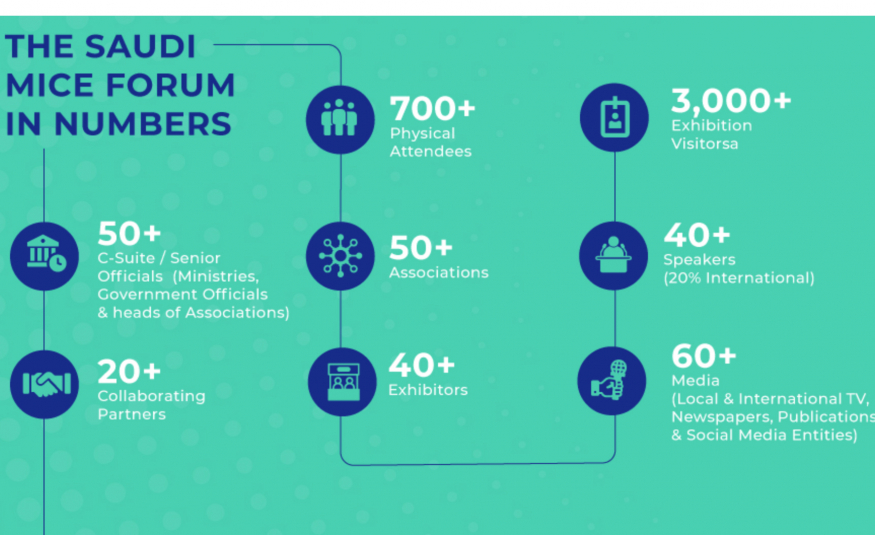The two-day Saudi MICE Forum held at the Crowne Plaza Riyadh, 8-9 January, was focused on the goal to create a “sustainable environment” for a thriving exhibitions and conferences industry in the region.
Organised by the Saudi Exhibitions and Conferences Association in partnership with the Saudi Conventions and Exhibitions General Authority, the Forum brought 40 local and international MICE specialists together for discussion, as well as an exhibition featuring regional suppliers to the industry.
Amjad Shacker, acting CEO of the Saudi Conventions and Exhibitions General Authority, said: “The MICE industry is a catalyst for the local economy and all other industries. It is also a sector in which large numbers of specialists meet, exchange experiences, and sign contracts and agreements that help promote the local economy.”
Participants discussed ways to enhance and develop the sector’s capabilities to attract international exhibitions and conferences, highlighting the most important challenges that impede the sector’s sustainability and growth.
The Forum also highlighted opportunities provided by the objectives of the Kingdom’s Vision 2030 to develop the industry.
“The possibilities of development here are looking fantastic. I think the future of MICE industry in the Gulf will be through harnessing the local expertise and facilities, which when matched with international interest, will maximise the local potentials,” said dmg Events president Matt Denton.
Another Forum contributor, Meggren Al Nashmi, member of the exhibtion and conference committee of the Riyadh chamber, added: “The MICE industry in the Kingdom is flourishing, especially with international events being organised here. The Saudi youth have a promising future and huge job opportunities in this large events sector in KSA."
Zuhair Al-Sarraj, chairman of the Board of Directors of the Saudi Exhibition and Conferences Association, said: “It is important to train and develop professionals in this industry through capacity building initiatives, obtaining international certificates, guiding small projects and new investors, and building a strong infrastructure to match industry developments with regard to the transition to the private sector, fair pricing of events venues, increasing their number, and setting standards for their evaluation.”





